Celtic: Brendan Rodgers strikes right notes for Scottish champions
- Published
My job is to inspire Celtic - Rodgers
The publicity would have felt familiar to Brendan Rodgers as he took on his first duties as Celtic manager.
The cameras, the attention, the questions were all a reminder of the scale of the job he has taken on, but the reaction of the fans was an indication of why he left the English game behind to move north.
More than 9,000 supporters sat inside Celtic Park for longer than an hour to wait to hear from the 43-year-old Northern Irishman. It is that kind of intensity, the weight of expectation and obligation, that sets Glasgow apart as a football city.
Rodgers was polished in his news conference. He touched upon the practical and emotional aspects of the job - the ambition to retain the title, to return to the Champions League group stages, working within a budget the club is comfortable providing, and his own background.
Members of Rodgers' family were in attendance, the uncles and cousins who first drew him into the Celtic fold. He has spoken in the past of following Sheffield Wednesday, but the sense was clear that he considers himself to come from a family background that is steeped in Celtic.
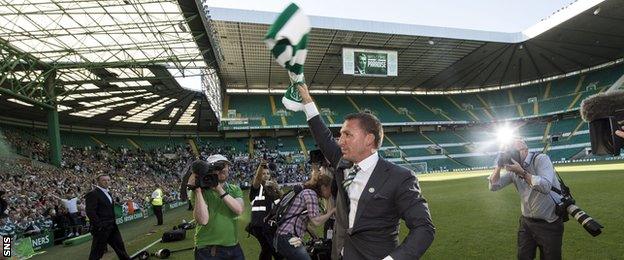
Around 10,000 supporters arrived at Celtic Park to greet Brendan Rodgers
A star attraction
The club delivered a similar event when Ronny Deila was appointed as manager two years ago, but this was an upgrade. More people, more media, more supporters - fan websites were also granted access to Rodgers to ask their own questions - and the sense was of the appointment being an event.
Where Rodgers differs from his predecessor is that there was no sense of him having to live up to the role. His experience and his profile, as well as his understanding of the club's identity, mean that Rodgers already emotionally and intellectually fills the role.
"The Premier League is the most competitive league in the world, but this is Celtic," Rodgers said.
"It's a different market of course, but I was convinced to come here by Peter [Lawwell] and Dermot [Desmond] to be given every possible chance to create the objectives, which is to get back into the Champions League and continue with winning leagues here in Scotland.
"I'm comfortable with that. It's not the same as down south, of course, the game is different - but it's still pressure to win and continue the great values of this club.
"People would have talked about the level, but Celtic's one of the biggest clubs in the world and for me to come out of the Premier League and come up here is certainly not a step down."
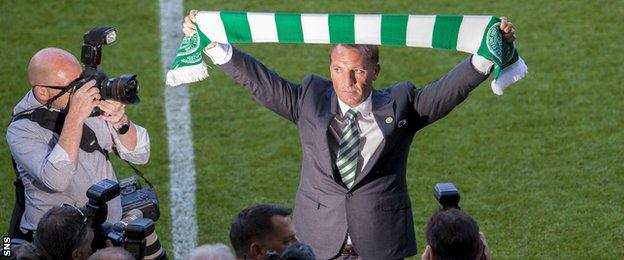
Rodgers' arrival at Celtic Park drew huge interest
New era, new faces?
Rodgers has still to appoint back room staff, although he has regularly worked with Chris Davies, a coach and analyst currently at Reading. Coaches John Kennedy and Stevie Woods will retain their roles.
In every sense, this was Celtic looking to embark on a new era, but there was no talk of radical changes from Rodgers. He spoke positively about the contribution of Scott Brown, the club captain, and of always looking to the youth set-up for players to come into the squad.
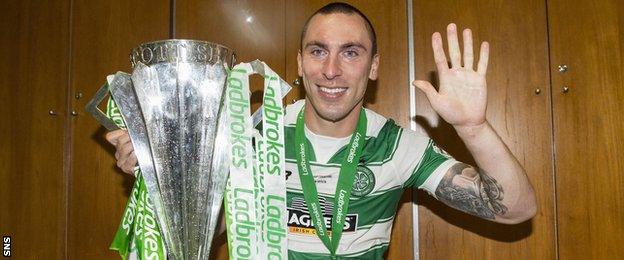
Brendan Rodgers has spoken of his admiration for Celtic captain Scott Brown
When he went to address the supporters, he mentioned the late Tommy Burns, who he worked under at Reading before going on to develop a firm friendship. Rodgers' touch was sure, he understood his audience.
"My first game was 1984, a friendly between Celtic and Finn Harps," he said.
"From that, I've been in the Celtic family. I understand the values of this club, the expectations and the pressures here, because it's not just about winning.
"Celtic is brought up about winning with a style and identity. That's something we can hopefully create and make the supporters proud of their team.
"My idea is to get the stands filled again. In the last few years, the top tier of the Lisbon Lion stand has been closed, it's my job to get 60,000 fans in here and inspire supporters to come back. It's about winning.
"If you look at Porto, Benfica, those are teams that are dominant in their own league and go into the Champions League and make a good fist of it.
"I've felt the support from the first conversation with Peter and Dermot, they will do everything they can and give me every support. They'll offer every opportunity to take the club forward."
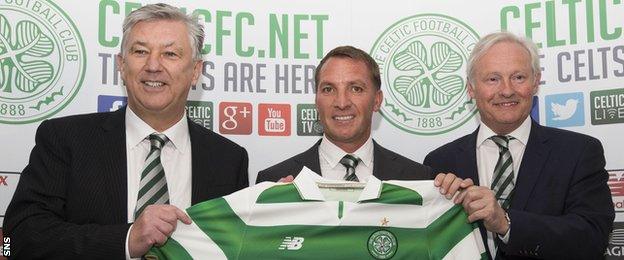
Rodgers "spoke at length" with Celtic chief executive, Peter Lawwell (left)
'Creating a style and identity'
Rodgers will familiarise himself further with the Celtic players in the coming weeks, before the squad return for pre-season training in mid-June.
There is no time to bed in, since Champions League qualifying ties loom, but he was revelling in the scope of the job.
He almost led Liverpool to the title, but a closer comparison - in terms of budget and recruitment - is the time he spent in charge of Swansea, who he led into the Premier League.
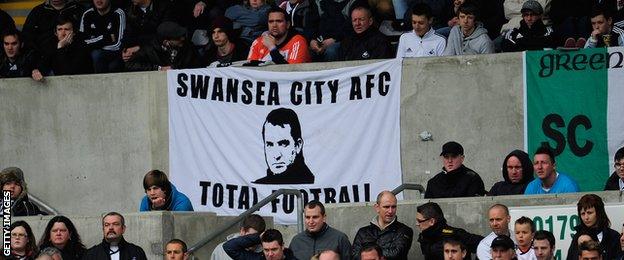
Rodgers had a successful spell in charge of Swansea before moving to Liverpool
"It was about creating a style and an identity of football that allows the team to flourish," he said.
"It wasn't necessarily about individual players, it was about the collective. It's about how the team works, about having a style and identity that allows you to win games.
"The identity here is to play attacking football, but always to win. That will be the emphasis around our work every day."
As Rodgers understood, that is the sentiment the Celtic fans wanted to hear.
- Published23 May 2016
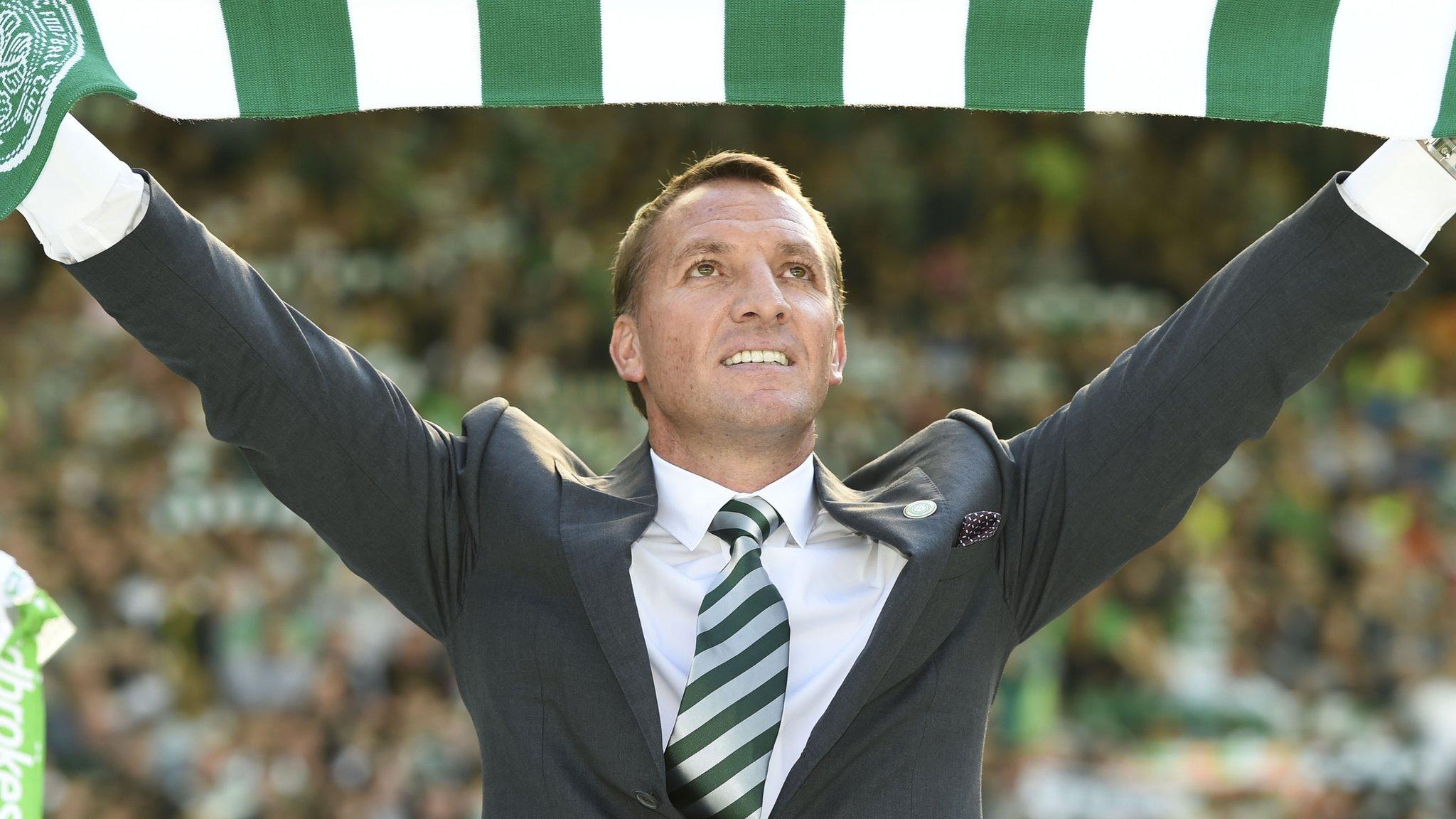
- Published20 May 2016
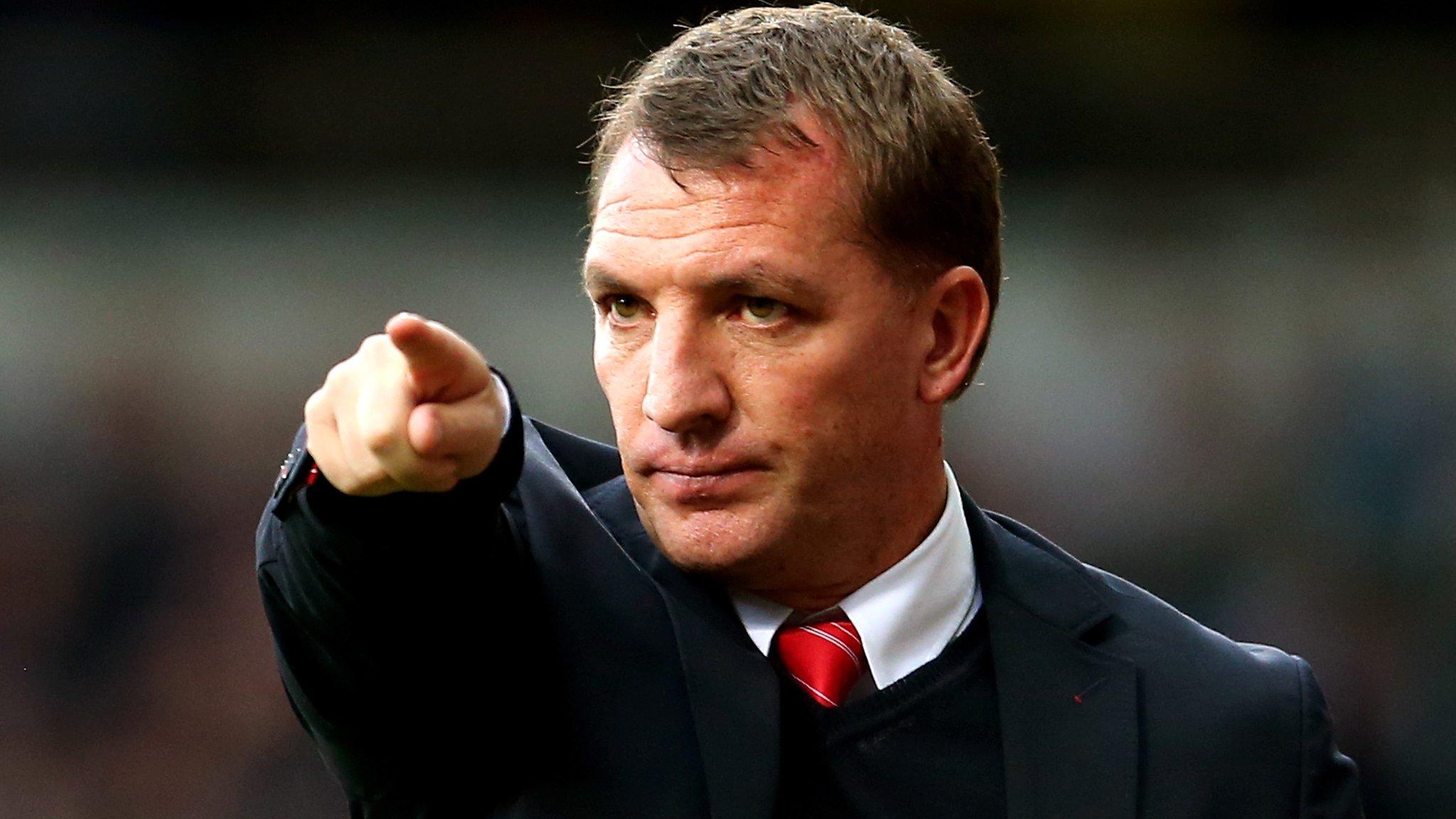
- Published24 May 2016
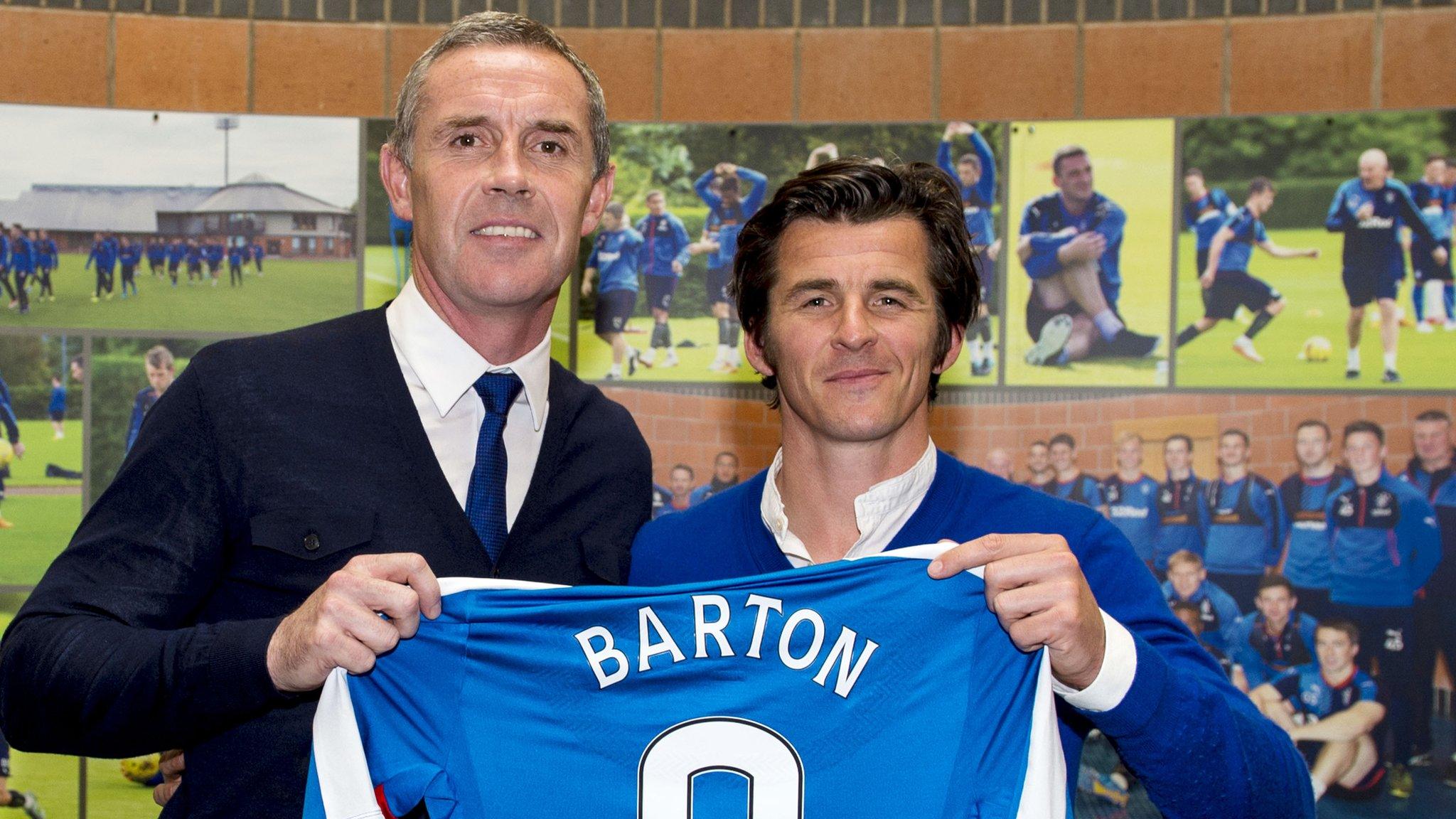
- Published20 June 2016

- Published7 June 2019
